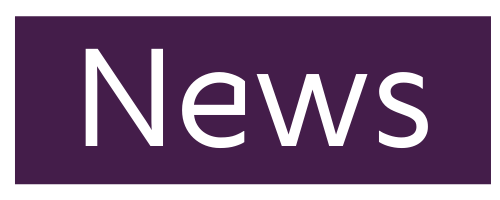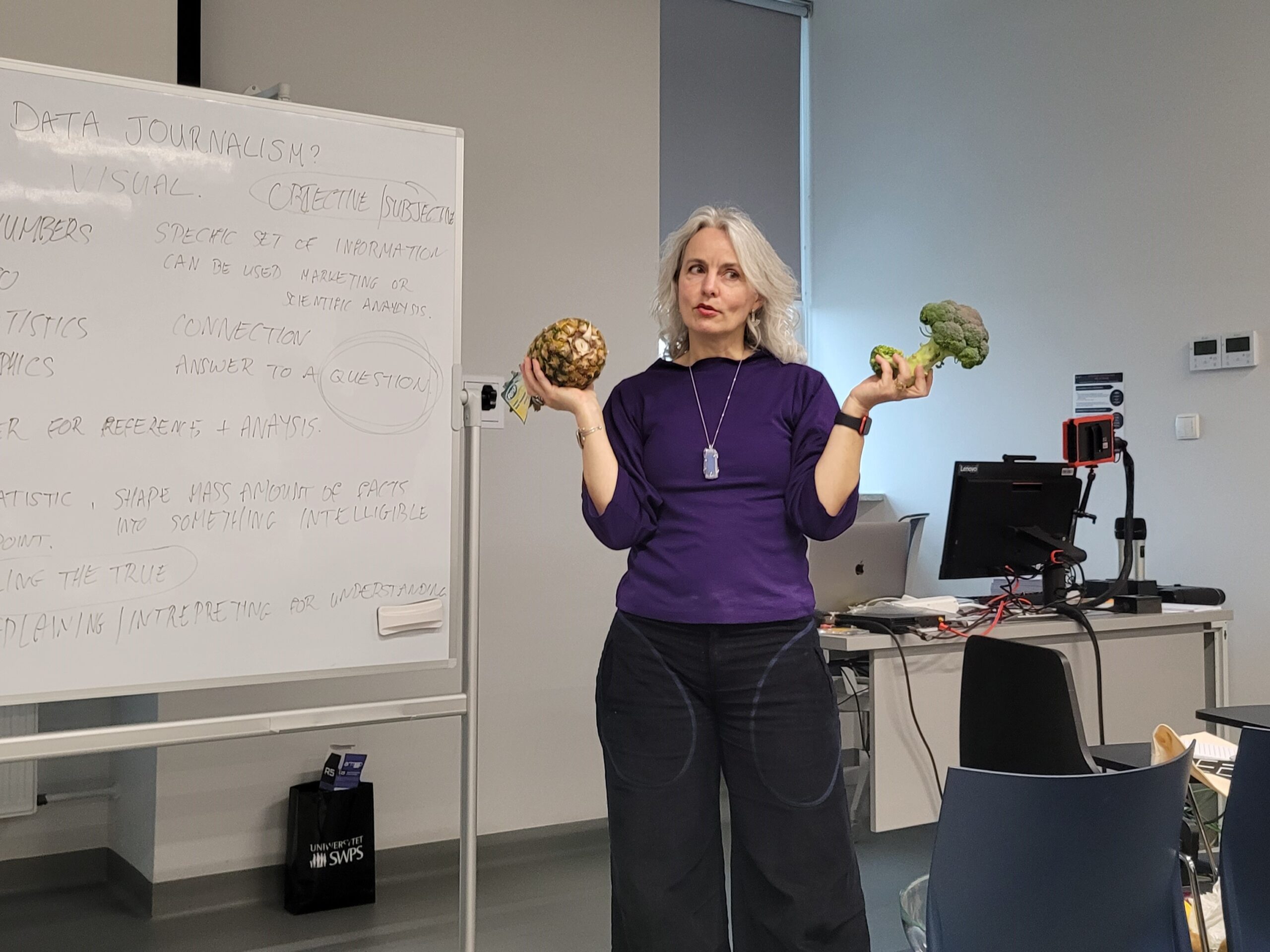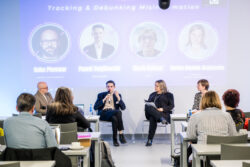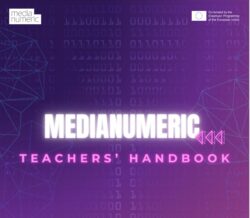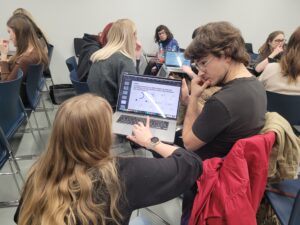In a world flooded with information and data, the ability to navigate and make sense of it all has become increasingly vital. Jacqueline Pietsch, journalist at Agence France-Presse (AFP) and partner of the MediaNumeric Programme, shares her thoughts on the importance of data literacy and the challenges of mis- and disinformation in our digital age. In this extensive interview, we delve into her insights on the goals of the MediaNumeric programme, the significance of data-driven journalism, and strategies to demystify data for a broader audience.
Demystifying data
Jacqueline starts off explaining the growing importance of data literacy in an era saturated with data: “Many people are actually fearful of data. Many people are fearful of maths. People might go running a mile when they see a spreadsheet. So it’s really important to demystify the process of understanding data. Being able to understand and read graphics and charts is an absolute essential skill today, because it’s really fundamental to how we receive information and its value.”
“It is as important to be data literate today as it is to be literate with words, but data literacy is not yet systematically taught.”
– Jacqueline Pietsch
Jacqueline emphasises that data is not an abstract concept reserved for experts. It surrounds us in various forms, such as sports statistics, which many sports fans engage with regularly. By demystifying the concept of data, individuals can realise that they already interact with data on a daily basis. Overcoming the fear and apprehension associated with data is essential for fostering data literacy among the general population.
Data literacy: Not just for maths whizzes
Contrary to common belief, one does not need to be a maths whiz to work with data effectively: “In all of the research that that we did for the State of the Art report within the MediaNumeric programme, the experts all said that to start working with data, you need maths at the level of about a 12 year old.” This means that the majority of individuals have the potential to understand and engage with data-driven journalism, storytelling and fact-checking. This is particularly relevant for younger generations, according to Jacqueline: “Growing up in an era in which we have an enormous access to big data, allows us to analyse and gain insights into societal phenomena like never before.” She points out how equipping younger generations with skills to navigate and critically analyse data is essential to counter the proliferation of misinformation: “The misuse of data, both intentional and unintentional, contributes to the amount of misinformation that is circulating today, which can have a massive impact on democracy.”
Making data approachable and engaging
To encourage the students of the MediaNumeric programme to explore the world of data, Jacqueline introduces an intriguing fruitbowl analogy during the course. By asking students to deduce stories and insights from a simple fruit bow, she demonstrates the creative possibilities and diverse paths that data analysis can lead to. This exercise aims to excite students, showing them the power of data analysis beyond mundane charts or spreadsheets : “I am always amazed by the huge amount of responses that come back from a really, really simple data set. If you can find that many stories out of one simple fruit bowl, can you imagine what you could actually find out from a data set on topics that are really, really important to look into?”
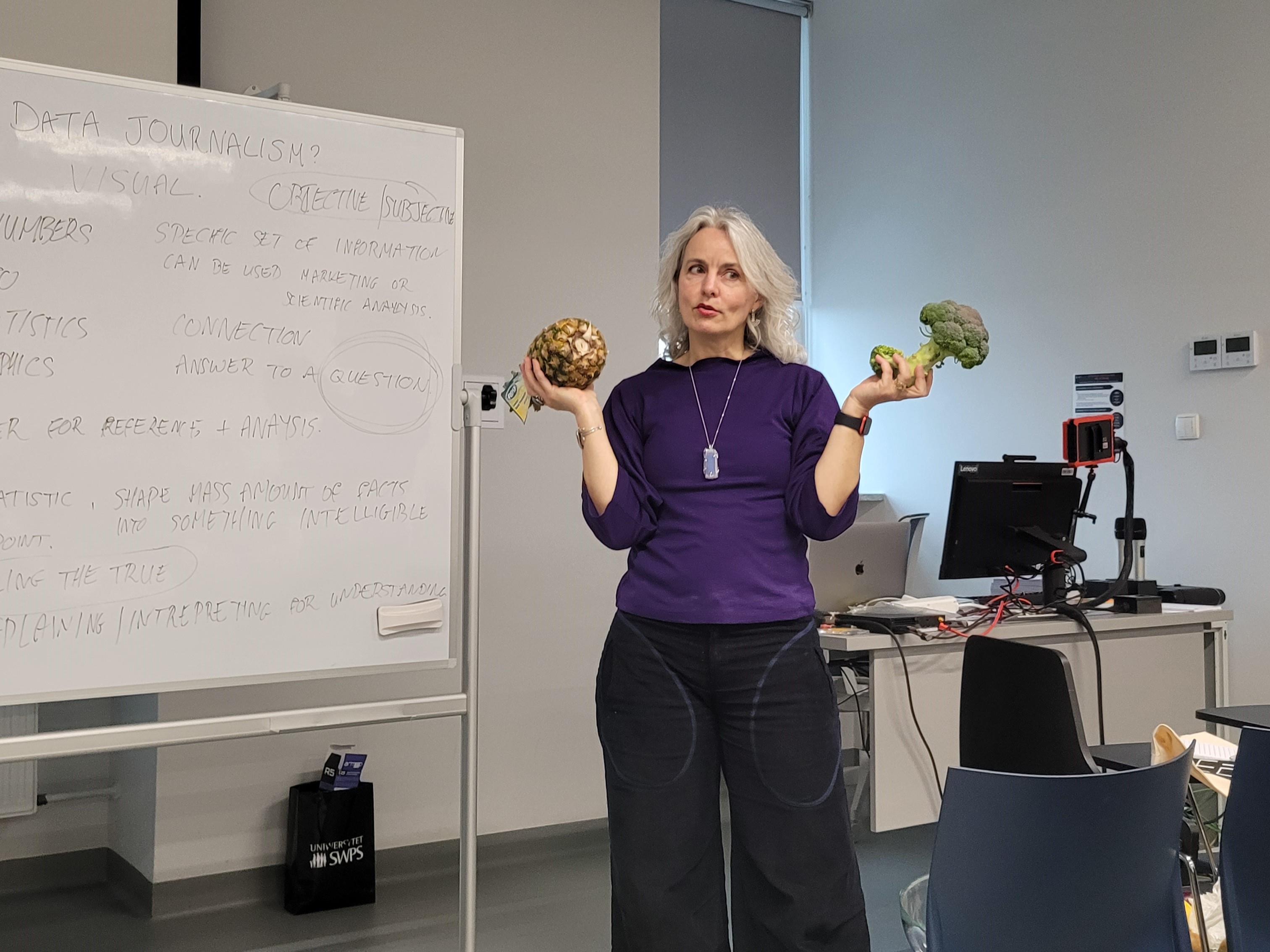
The transformative impact of digitisation on news and media
Our modern world’s digitisation has revolutionised and changed the news and media industry in numerous ways. One of the most significant changes, according to Jacqueline, is the speed at which news is disseminated: “The immediacy of news, I think, is something that has really very profoundly changed our profession. Previously, journalists used to work for the next day’s news. They had the time to do research, to craft stories, to put something together before the newspapers would go to print or the evening show would air on television.” Jacqueline points out how, with the rise of digital platforms, news has become immediate, creating pressure for journalists to deliver stories quickly. This emphasis on speed can sometimes compromise on accuracy, which occasionally leads to unintentional contribution to the circulation of misinformation.
Another consequence of digitisation, Jacqueline notes, is the accessibility of news. “Before, people were willing to pay for their news. But now there is so much of it available online, and it’s all for free. People don’t necessarily buy newspapers anymore and advertising revenue has decreased for TV and radio stations, making it very difficult to find an economic model for media.”
The dangers of misinformation on social media
In the age of social media, mis- and disinformation seem to thrive due to several key factors. Jacqueline points out that social media serve as a breeding ground for false information, because of their widespread reach. Additionally, the presence of friends and family on these platforms creates a sense of trust and credibility, making individuals more susceptible to believing and sharing information without verifying its accuracy.
“You don’t necessarily want to question what your friends and family are saying, which makes it much easier to believe them than, say, to believe a media organisation.”
– Jacqueline Pietsch
Jacqueline points out how studies have shown that people often share online information without thoroughly reading or fact-checking an article: “People might read the headline in the first paragraph, but they don’t actually read the rest of the article. So people are really resharing information that they have not thought about at all.”
Empowering the younger generation
At the end of the conversation, Jacqueline explains how she hopes that the MediaNumeric students will not only be inspired by data after following the programme, but also recognise the relevance of data in their daily lives: “I hope that they will have gained an enthusiasm for data, even if they don’t go on to work in data journalism or data analysis. What I would like them to take away from the course is to have demystified data, so that they are not scared by it, but instead delve into it and think critically about the information that appears in all of their social media feeds.”
